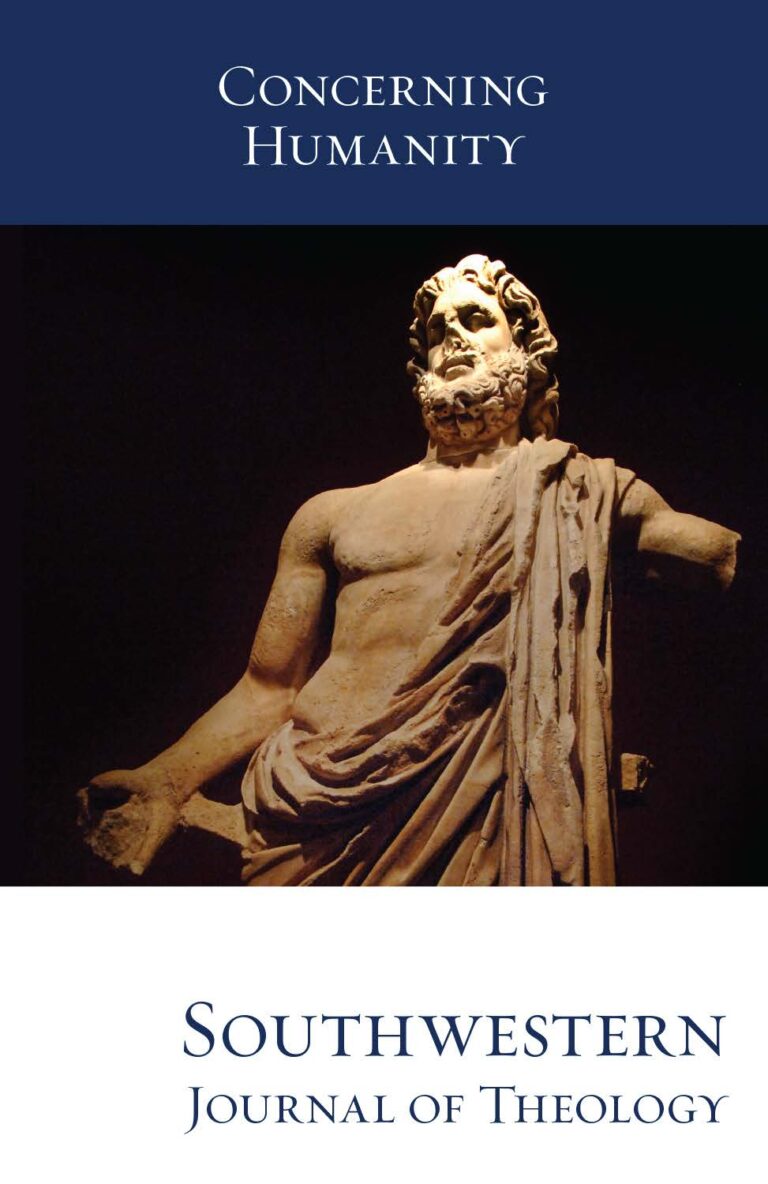
Concerning Humanity
Southwestern Journal of Theology
Volume 59, No. 1 – Fall 2016
Managing Editor: W. Madison Grace II
Edited by Jason Sexton. Grand Rapids: Zondervan, 2014. 240 pages. Paperback, $19.99.
The doctrine of the Trinity is the central tenant of the Christian religion. With the advent of Social Trinitarianism, new work on the Trinity has been revived to counter this departure from traditional doctrine. Jason Sexton brings together four theologians offer their prospectives on new ways to think of the Trinity. Two theologians argue for the classical version of the Trinity while the other two argue for a new relational model of the Trinity.
Stephen Holmes argues that the doctrine of the Trinity has suffered throughout history from people redefining words such that the doctrine is reduced to incoherence; thus, he proposes to return to the roots of the doctrine (26–28). He does not believe that Eastern and Western Christianity developed different theories from each other as many have argued (28–30). Both groups see the relations between the divine persons as merely logical so as to point out the distinction between the persons of the Trinity. Rather than being persons with substantial divisions in the modern sense of the word, Holmes argues that each member of the Trinity is a subsistence in the divine being logically related to each other and nothing more (38–39). Any further understanding is impossible since God is ineffable (43, 46). Holmes also does not see the filioque doctrine as an important point of dispute (46). It is argued against Holmes that ineffability implies that God cannot be understood making Christianity useless and incoherent. Further, Scripture appears to imply personal as well as logical relations between the Godhead.
Paul Molnar argues that the Trinity is a mystery that cannot be fully understood; therefore, it should be taken in faith (73–74). We cannot understand the Trinity by appeal to anything human. There are three persons who all equally share the divine being. The Son and the Spirit are generated from the divine being, not made according to an act of the Father’s will (85). Generation is different from creation in that God is free to will in respect to creation but not generation (89). Further, the filioque doctrine is inconsequential since the Spirit proceeds from the divine being shared by both Father and Son (85). Against Molnar, the other respondents disagree over the generation of the Spirit from the divine being rather than from the other persons of the Trinity. Further, the notion of mystery is seen to bring up the problem of understanding the Trinity again. Lastly, it is argued that people use humanity to understand God all of the time; otherwise, no one would know anything about God.
Wanting to emphasize personal relations, Thomas McCall argues that the Trinity is a necessary relationship of love (113). The Persons share I–Thou relationships indicated by use of personal pronouns in speech by each Person in Scripture (117–18). While the actions of the Trinity are not divided, each act is performed by a different person with the other two operating in support or agreement. Thus, actions within the divine being are predicated to a particular person, but there is still one being, one mind, and one will shared by all three (121–24). The divine persons are necessarily related such that no one can exist without the other, yet they are distinct speech-agents who know and love each other in unity (130–33). A concern with McCall’s theory is that it leads to tritheism by emphasizing three centers of consciousness with their separate parts. Further, it is argued that all biblical instances of personal pronouns in speech used by the divine persons do not actually indicate that the Persons are personal in McCall’s sense of the word. Lastly, can the divine persons talk to each other if they share one intellect? It does not seem so.
Lastly, Paul Fiddes sees the divine subjects in the Godhead as movements in divine life (160). Divine persons are just relations in the divine being that are distinct from each other (164). These movements are seen in the acts of the divine being, particularly in the movements of generation of Son and Spirit (169–70, 175). Fiddes believes that people participate in the divine movements as the divine movement ultimately embraces creation in a very personal way and people join in that personal movement of divinity. Reality is described as a dance between God and humanity that involves personal interaction between the two such that the mysterious God comes to be known (182). Fiddes is charged by his companions as denying the personhood of God by reducing each subject to a mere relation. Such a move, it is argued, along with humanity’s participation in divine movements, looks suspiciously like panentheism and endangers orthodox Christology.
The issues this book raises come down to how to understand the divine unity. Holmes and Molnar stress divine unity such that the modern understanding of personhood cannot be applied to the divine. As a result, it becomes difficult to draw real distinctions between the divine subjects. Therefore, they appeal to divine mystery. McCall and Fiddes downplay divine unity so as to incorporate some modern understanding of personhood as they believe Scripture indicates. As a result, Christian monotheism seems endangered. The book demonstrates the need for carefully balancing the issues, avoiding both inexplicability and unorthodoxy.





